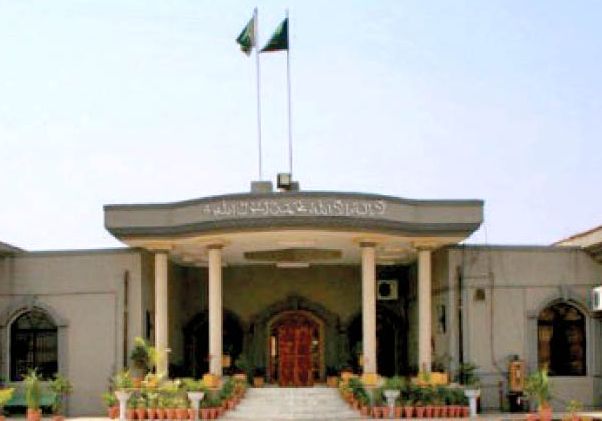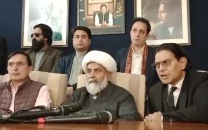IHC asks NAB not to violate legal provisions
Says bank accounts of an accused can only be frozen with permission of court

The Islamabad High Court (IHC) has noted that the National Accountability Bureau (NAB) cannot freeze accounts of an accused by relying solely on Section 23 of the National Accountability Ordinance (NAO), 1999 and disregarding Section 12 of the same law that governs the top graft buster.
“It seems that when it comes to the known assets of any accused person, NAB conveniently avoids passing of orders under Section 12 and simply relies upon Section 23 and intimates relevant authorities to mark ‘caution’ on the same.
“This practice by NAB appears to be in violation of statutory provisions and should be avoided; whenever NAB desires that property should be frozen, it should specifically, through NAB chairman pass such order and get it validated from the concerned accountability court,” said the IHC in written order.
An IHC division bench comprising Justice Aamer Farooq and Justice Ghulam Azam Qambrani issued this 12-page verdict while hearing a petition filed by the Sindh Bank Limited former president who is facing a NAB case in multi-billion rupees fake accounts case and whose bank accounts were frozen.
The IHC said the spirit of the NAO 1999 is that investigation or inquiry is to be conducted and concluded by NAB expeditiously and also trial is to be concluded within 30 days, yet it is hardly ever the case.
“The inquiry/investigation continues for years and even the trials are not concluded within stipulated statutory period. In such a situation blocking the bank account (s) of an accused person would be tantamount to depriving him from his legitimate means to live.
“It can never be the spirit of law that a person, facing investigation or inquiry, is unable to withdraw from his bank account (s) for day-to-day affairs and the referred position to continue for years due to delay by the investigating agency,” it said.
The court said even in the instant cases, investigation/inquiry has been pending since April 2019 and in July 2019 assets of the petitioners were put under caution.
It said the object of letters written by NAB to the banks, where petitioners are maintaining their accounts and consequently the denial by the banks to operate the same by the petitioners, have the effect that the petitioners are finding it difficult to survive as they are unable to withdraw a single rupee.
The court said where the state has the responsibility to prosecute and procure punishment of a guilty person it also has an equal responsibility that a citizen is not denied from exercising or enjoying rights over his/her property, as enshrined in the Constitution.
The IHC noted that NAB investigations/trials continue forever and along with it the effects of provisions like Sections 12 and 23 of the NAO, 1999 and if eventually the accused persons are acquitted, it is nothing short of a hapless situation for them.
The court said the Sindh High Court has already made a fine distinction between Sections 12 and 23 and said bank accounts can be operated, where there is no order under Section 12 and only caution letter under Section 23 has been sent “inasmuch as Section 23 only bars transfer and/or creation of charge”.
“We feel that this is the correct approach towards Section 23, as the investigating agency is not concluding investigation expeditiously and the trial is not decided within the statutory limitation.
“The letters in the instant case written to the banks of the petitioners are hence under Section 23 and not Section 12. In view of foregoing, impugned orders passed by learned accountability court are not tenable, therefore, the above writ petitions are allowed.
“The petitioners are permitted to withdraw the sums mentioned in their applications, provided that with each withdrawal, they shall tender an affidavit that withdrawal of funds is for personal use only and the banks shall keep affidavits in their record.”
The court, however, clarified that in case, it is found that petitioners are violating the mandate provided in Section 23, the law shall take its course.



















COMMENTS
Comments are moderated and generally will be posted if they are on-topic and not abusive.
For more information, please see our Comments FAQ